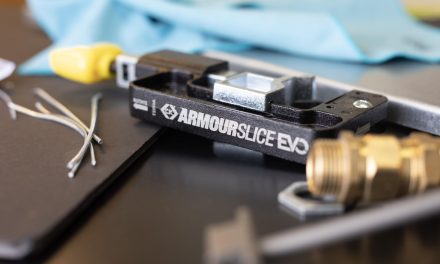A toolkit has been launched to help businesses close the skills gap in the construction, engineering, technology and manufacturing sectors by recruiting women and girls into the sector through apprenticeships.
WISE, which campaigns to get more women into STEM careers, the engineering skills body Semta and the Institution of Civil Engineers have formed a partnership to launch the apprenticeship toolkit for businesses.
Launching the report at the Institution of Engineering and Technology’s conference to mark National Women in Engineering Day in Birmingham, WISE CEO Helen Wollaston hailed the toolkit as a step change for business saying: Employers tell us they would employ women in technical roles if only they would apply. A few simple changes to how roles are described and marketed makes all the difference. We put the toolkit together to share examples of what others have done. This isn’t just about encouraging girls to consider a STEM apprenticeship. We would like to see employers offer apprenticeships to women of any age who want the opportunity to do something different including women they already employ.
The toolkit contains information, tips, case studies and useful resources it is intended to be a guide, leading businesses from their first steps in reaching out to women and girls, throughout their apprenticeships and on to their future careers as well. One of the companies featured is global engineering firm Babcock, Archie Bethel, CEO of Babcock International Group said:
We understand the importance of encouraging and inspiring women to lead fulfilling careers in engineering. It’s not about being nice. A diverse workforce drives business performance, so an increase in women choosing STEM careers means a wider talent pool for the industry, and brings a broader perspective to our business.
Building on our long-standing relationship with WISE and the success of previous collaborations, such as the People Like Me project, the Apprenticeship toolkit is a valuable asset to employers striving to increase diversity in their workforce.
Despite recent growth in the number of apprenticeships, with 3 million new apprentices since 2010, the number of women taking up apprenticeships in technical roles like engineering and technology related fields has remained much lower.
Research shows that while there were 13000 more women in technical roles last year than previously, women still only make up 21% of core STEM employees. And only 17% in ICT apprentice graduates, 8% of engineering apprentice graduates and 2% of construction graduates were women.
Talking about why these figures remain so low for women and girls taking up apprenticeships in STEM sectors, Ann Watson, Chief Executive at Semta Group said:
There is still a view that apprenticeships, especially in engineering and other technical fields, aren’t for girls.
That’s just nonsense and we know from the work Semta has done that women and girls working in STEM apprenticeships almost universally love their jobs, have a great experience and are in high demand!
That’s why the toolkit is so important because businesses know this but are often stuck on how to reach out and attract women and girls into often male-dominated industries. We’ve put a step by step plan together to support their efforts.
The full toolkit is free to access at www.wisecampaign.org.uk/



